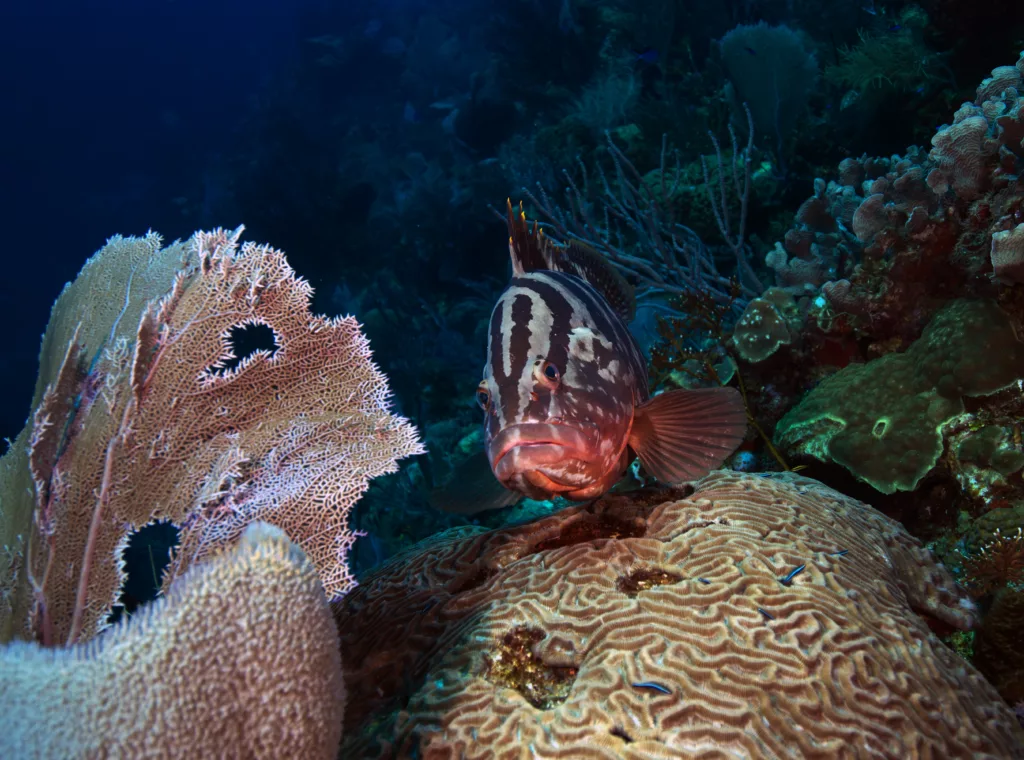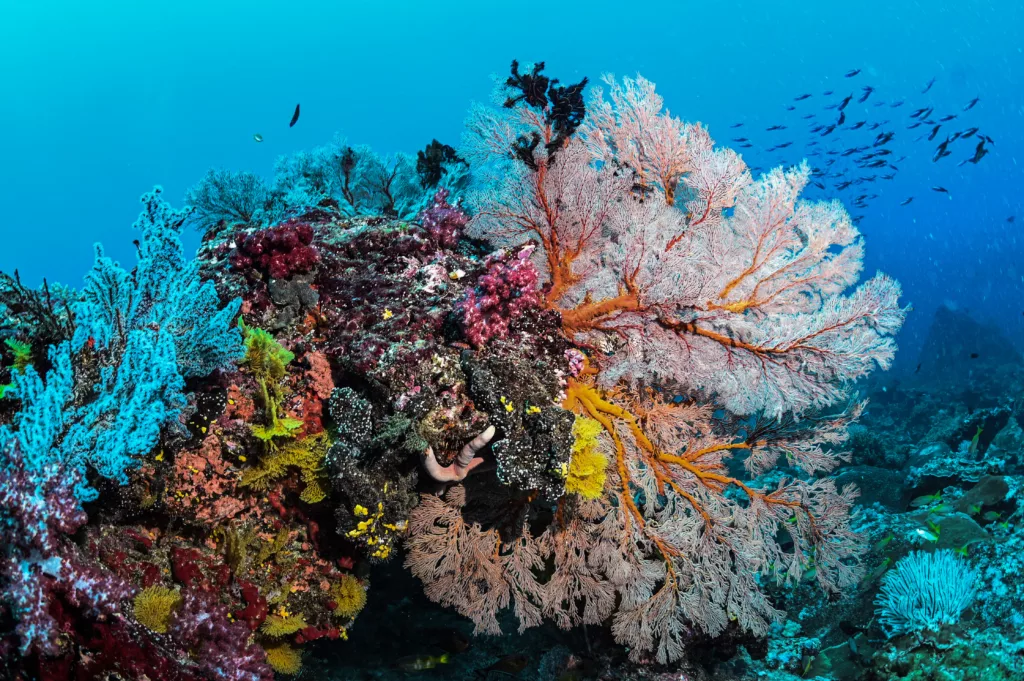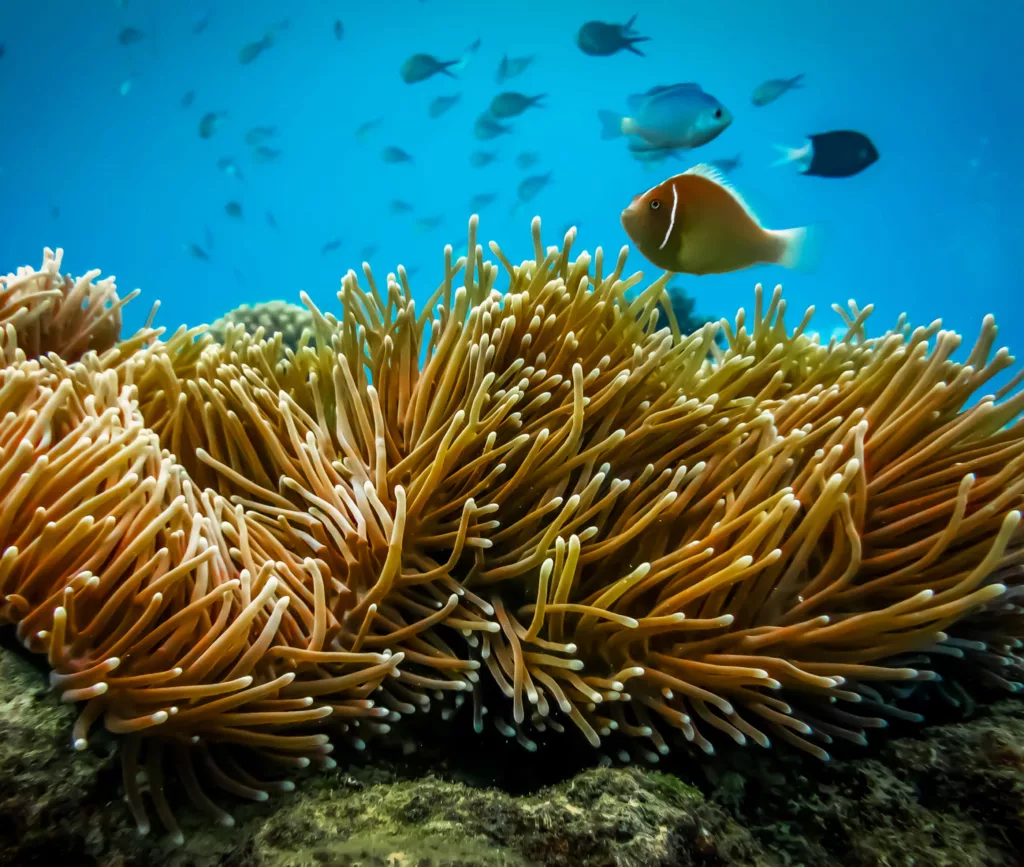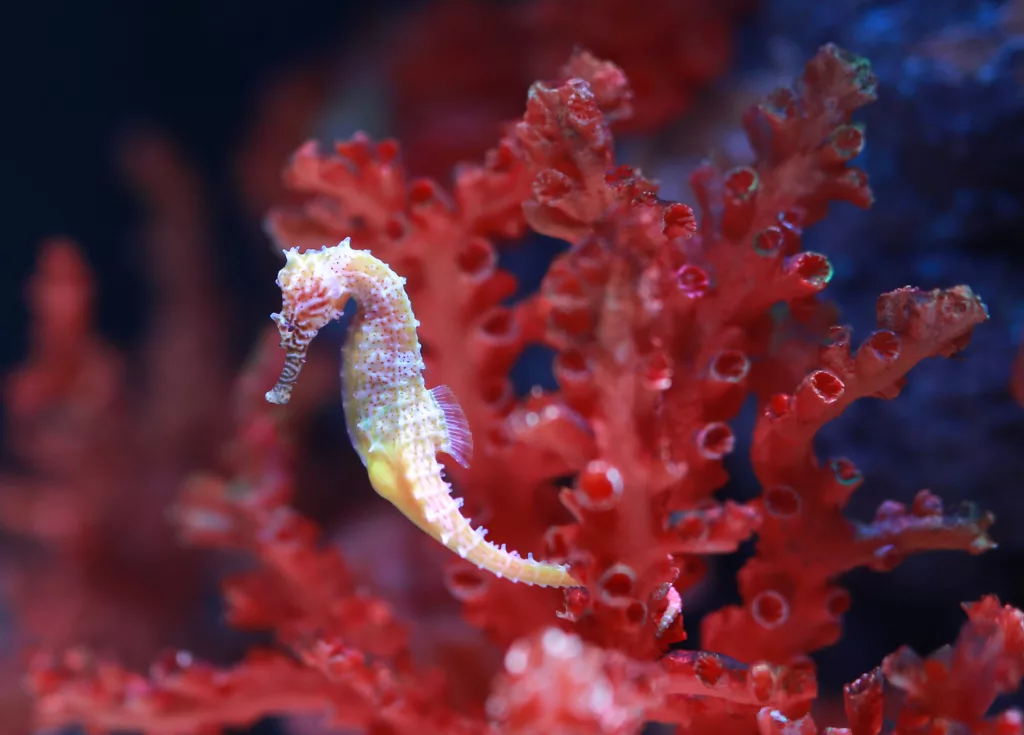Scuba diving, the blue expanse of our world’s oceans, covering more than 70% of the Earth’s surface, is a vital part of our natural environment. Yet, these beautiful waters face threats from pollution, climate change, and unsustainable practices that damage marine ecosystems. However, each of us holds the power to make impactful changes through relatively simple daily decisions. In this blog post, we will explore how enthusiasts of underwater adventures, especially those fond of diving locales like Bali, can contribute to ocean conservation in their activities.
Understanding the Impact of Scuba Diving on Marine Ecosystems

The allure of diving into the blue depths, especially in biodiversity hotspots like Bali, is undeniable. Seeing the vibrant marine life and intricate coral formations firsthand is a breathtaking experience. However, the growing popularity of scuba diving has a flip side. Increased human activity under the ocean can lead to ecological imbalances. Corals may suffer physical damage from careless interactions, and aquatic creatures can be distressed by the disturbance divers create. Recognizing these harmful impacts is crucial for any diver. Through education on marine ecosystems and the adoption of responsible diving protocols, divers can actively minimize their ecological footprint. This switch not only allows divers to enjoy the spectacular undersea world but also ensures its preservation for future generations. By embracing responsible diving techniques such as controlling buoyancy to avoid contact with the reef, minimizing use of heavy equipment, and choosing eco-friendly diving operators, one contributes significantly to marine conservation.
The Role of Eco-Conscious Travelling

Eco-conscious traveling plays a crucial role in promoting sustainability and protecting the environment. By making mindful choices, such as using eco-friendly accommodations, supporting local businesses, reducing waste, and minimizing carbon footprints through responsible transportation options, travelers can significantly lessen their impact on the planet. This approach not only helps preserve natural landscapes and wildlife but also supports the well-being of local communities by fostering economic growth and cultural exchange. Additionally, eco-conscious travelers often engage in conservation activities and environmental education, further raising awareness about the importance of preserving our natural world. In essence, eco-conscious traveling is about making travel decisions that are not only enjoyable but also beneficial for the environment and society as a whole.
Must-Visit Dive Sites in Bali and Their Conservation Efforts
Bali, Indonesia, is a prime destination for underwater explorers, featuring some of the most enchanting dive sites globally. The USAT Liberty Wreck in Tulamben and the vibrant coral gardens of Menjangan Island are outstanding examples. These sites are not only spectacular for their natural beauty and diverse marine life, including colorful coral reefs, diverse species of fish, and historic shipwrecks, but they also lead in conservation efforts. Local diving operators and conservation groups often collaborate to enforce sustainable practices. Initiatives like regular marine debris clean-ups, establishment of artificial reefs, control of visitor numbers, and strict adherence to no-touch and no-take policies help maintain the marine environments. Through these initiatives, Bali continues to be a leader in integrating tourism with conservation, ensuring that the natural beauty and health of its dive sites endure for years to come.
Practical Tips for Marine Conservation

Contributing to marine conservation is something every diver can partake in, whether amateur or seasoned. Protecting our oceans starts with simple, actionable steps. One of the primary practices is avoiding physical contact with all forms of marine life to prevent disturbance or damage. Sticking to established diving paths can help preserve delicate underwater habitats. Reducing plastic usage, especially single-use plastics, significantly decreases the probability of marine pollution. Moreover, divers are encouraged to engage in underwater clean-ups, which help remove debris that could harm aquatic life. Spreading awareness through discussions, workshops, and social media about the importance of ocean health is crucial. Educating others about the fragility of marine ecosystems and the impact of human activities can inspire more individuals to adopt environmentally responsible behaviors. Collectively, these efforts can transform individual actions into a global movement for marine conservation, securing the health of oceanic ecosystems for future generations.
The Dive into Conservation: Turning the Tide Together
By making informed, conscientious choices in our diving and travel practices, each of us acts as a vital participant in the movement towards healthier oceans. Implementing simple day-to-day conservation efforts and choosing sustainable travel options can lead to significant environmental benefits. Let’s unite as eco-warriors, using our passion for underwater adventures to advocate for and achieve major ocean conservation wins.


This post wonderfully highlights the importance and impact of responsible practices while scuba diving. I appreciate the useful tips offered to ensure the marine ecosystem is less disturbed. It reminds us that conservation is on all of us.
I completely agree with the post! As a scuba diver myself, I’ve seen firsthand how our actions can impact the marine ecosystem. It’s great to see efforts being made to promote sustainable diving practices and reduce our environmental footprint.
Thank you for sharing your perspective, Kaitlyn! We couldn’t agree more – every small action counts when it comes to protecting our oceans. At [Pebble and Fins], we’re committed to making a positive impact through responsible diving practices, education, and community engagement. If you have any questions or would like to learn more about our initiatives, please don’t hesitate to reach out! We can be contacted at [email protected] or +62 857 3891 8262.
I’m glad to see that Bali is leading the way in marine conservation. As someone who has visited the island multiple times, I can attest to its beauty and importance as a diving destination. Every small action counts, and it’s heartening to know that there are people working hard to protect our oceans.
Thank you, Rizal! We’re thrilled to hear that you’ve had a positive experience in Bali and are passionate about marine conservation. At our resort, we believe that every small action counts, just like you said. That’s why we’re committed to making a real impact at the local level through education and job opportunities. Our dedicated training facilities for local staff and surrounding communities aim to empower them with the skills they need to succeed. We’re proud to be part of this movement and would love for you to join us on our mission! For more information, please don’t hesitate to reach out via email at [email protected] or phone at +62 857 3891 8262.
This post really resonated with me! As a nature lover and scuba diver, I believe it’s crucial that we all do our part to protect the ocean. From reducing plastic use to supporting local conservation efforts, every little bit counts. Let’s keep spreading awareness and working together towards a healthier planet!
Hi Siti Nur Ain, thank you for sharing your thoughts on the importance of protecting our oceans. We couldn’t agree more! At Pebble and Fins, we’re committed to making a positive impact through education and job opportunities in the local community. Our dedicated training facilities will empower locals to take charge of their environment. Join us in our mission to change the world, one resort at a time. If you have any questions or would like to learn more about our efforts, please feel free to contact us at [email protected] or +62 857 3891 8262.